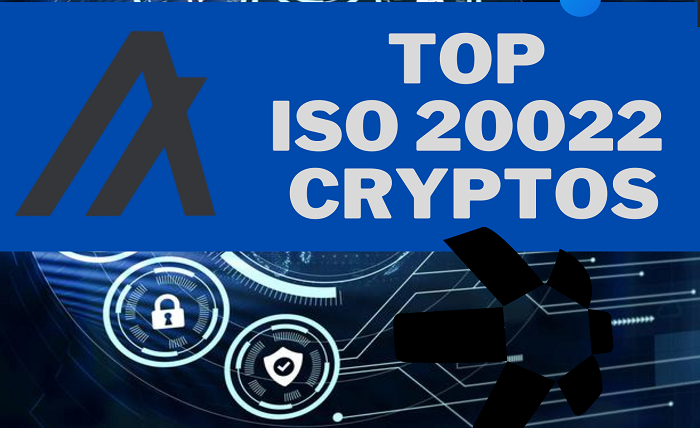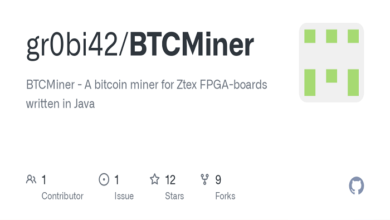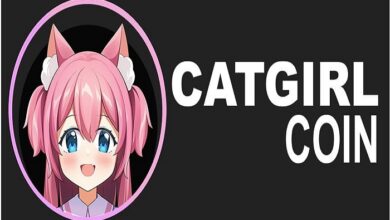ISO 20022 Crypto List: What Is It and Which Coins Are Compliant?

ISO 20022 is a global standard for electronic data interchange (EDI) between financial institutions. It aims to improve the efficiency, security, and interoperability of cross-border payments and transactions. ISO 20022 covers various aspects of financial communication, such as messaging formats, data dictionaries, business processes, and validation rules.
ISO 20022 is expected to become the dominant standard for financial messaging in the next few years, as more and more central banks, payment systems, and market infrastructures adopt it. According to SWIFT, the global provider of secure financial messaging services, ISO 20022 will enable the exchange of richer and more structured data, which will facilitate automation, compliance, and innovation in the financial industry.
Why Is ISO 20022 Important for Crypto?
Cryptocurrencies are digital assets that operate on decentralized networks, such as blockchains or distributed ledgers. They offer various benefits, such as fast, low-cost, and transparent transactions, as well as financial inclusion and empowerment for the unbanked and underbanked populations.
However, cryptocurrencies also face several challenges, such as regulatory uncertainty, security risks, scalability issues, and interoperability problems. To overcome these challenges and achieve mainstream adoption, cryptocurrencies need to comply with the standards and regulations of the traditional financial system, as well as integrate with its infrastructure and services.
This is where ISO 20022 comes in. By complying with ISO 20022, cryptocurrencies can gain legitimacy and recognition from the financial authorities and institutions that use it. They can also access the global payment network that supports ISO 20022, which will enable them to offer cross-border and cross-currency transactions with ease and efficiency.
Moreover, by adopting ISO 20022, cryptocurrencies can leverage its features and benefits, such as:
- Enhanced data quality and accuracy: ISO 20022 allows the exchange of more detailed and structured data than the legacy formats, such as SWIFT MT. This can reduce errors, frauds, and disputes in crypto transactions.
- Improved compliance and transparency: ISO 20022 enables the inclusion of more information about the parties involved in a transaction, such as their identities, roles, and purposes. This can facilitate compliance with anti-money laundering (AML) and counter-terrorism financing (CTF) regulations, as well as enhance transparency and trust in crypto transactions.
- Increased innovation and interoperability: ISO 20022 supports the use of extensible markup language (XML), which is a flexible and adaptable format that can accommodate different types of data and messages. This can foster innovation and interoperability in the crypto space, as well as enable the integration of new technologies and services.
Read more about revolver-news
Which Coins Are Compliant with ISO 20022?
According to various sources, there are currently seven cryptocurrencies that are compliant with ISO 20022. They are:
- Quant (QNT): Quant is a project that aims to connect different blockchains and networks through its Overledger Network. Quant claims to be the first project to be fully compliant with ISO 20022, as well as other standards such as GDPR and PSD2.
- Ripple (XRP): Ripple is a project that provides a global payment network that uses its native cryptocurrency XRP as a bridge currency. Ripple is one of the founding members of the ISO 20022 Registration Management Group, which oversees the development and implementation of the standard.
- Stellar (XLM): Stellar is a project that offers a decentralized platform for cross-border payments and remittances. Stellar uses its native cryptocurrency XLM as a medium of exchange. Stellar is also part of the ISO 20022 Registration Management Group, along with Ripple.
- Hedera (HBAR): Hedera is a project that operates a public distributed ledger that uses a novel consensus mechanism called hashgraph. Hedera uses its native cryptocurrency HBAR to power its network and applications. Hedera claims to be compatible with ISO 20022, as well as other standards such as W3C DID.
- IOTA (MIOTA): IOTA is a project that creates a distributed ledger that uses a directed acyclic graph (DAG) instead of a blockchain. IOTA uses its native cryptocurrency MIOTA to enable feeless transactions on its network. IOTA claims to be compliant with ISO 20022, as well as other standards such as ETSI M2M.
- XDC Network (XDC): XDC Network is a project that builds a hybrid blockchain network that combines public and private features. XDC Network uses its native cryptocurrency XDC to facilitate trade finance transactions on its platform. XDC Network claims to be compliant with ISO 20022, as well as other standards such as Corda R3 and Hyperledger Fabric.
- Algorand (ALGO): Algorand is a project that develops a scalable and secure blockchain platform that uses a pure proof-of-stake (PPoS) consensus algorithm. Algorand uses its native cryptocurrency ALGO to power its network and applications. Algorand claims to be compliant with ISO 20022, as well as other standards such as CBDC and DeFi.
Conclusion
ISO 20022 is a global standard for financial messaging that aims to improve the efficiency, security, and interoperability of cross-border payments and transactions. ISO 20022 is expected to become the dominant standard for financial communication in the next few years, as more and more financial institutions adopt it.
Cryptocurrencies are digital assets that operate on decentralized networks, such as blockchains or distributed ledgers. They offer various benefits, such as fast, low-cost, and transparent transactions, as well as financial inclusion and empowerment for the unbanked and underbanked populations.
Read more about revolver-news




